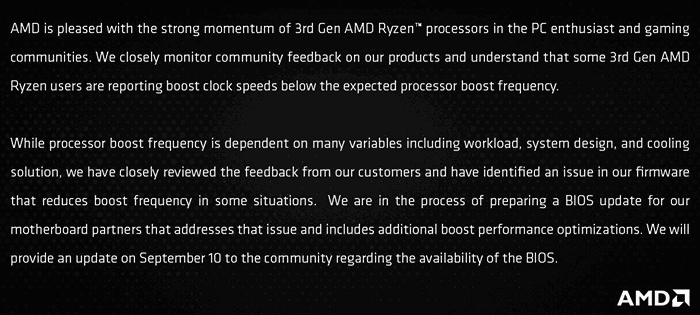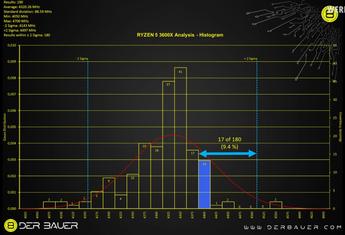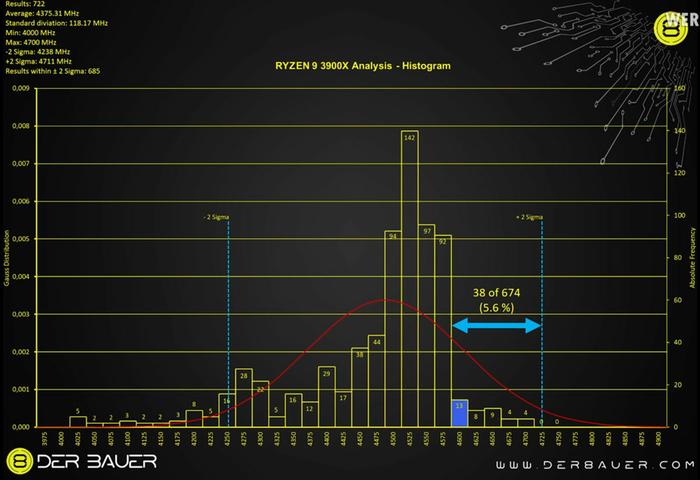Overclocker, OC tool designer, and YouTuber der8auer has released the results of his AMD Ryzen 3000 boost survey. There were almost 3000 participants in der8auer's survey which he filtered, removing obvious trolls and so on from the results, to get to 2726 valid submissions. While participants are out of the surveyor's control, and they could have had a wide range of very different computer hardware, BIOS and software versions/settings applied, the results are nevertheless rather interesting. The big picture drawn from the results, is that, with regard to Ryzen 3000 processors achieving their advertised boost speeds when pushed, "it's worse than I thought," said der8auer.
After the necessary pre-amble about the survey data he collected, and charting how many of each SKU was represented in the survey (see below), der8auer discussed the testing methodology. As recommended by AMD, he asked survey participants to run Cinebench R15 single core, monitor with HWinfo (500ms polling), and make sure PBO was turned off. Der8auer also touched on survey theory, where participants are more likely to come from the satisfaction extremes of the user spectrum - those with strong opinions are more likely to use their time testing for a survey.
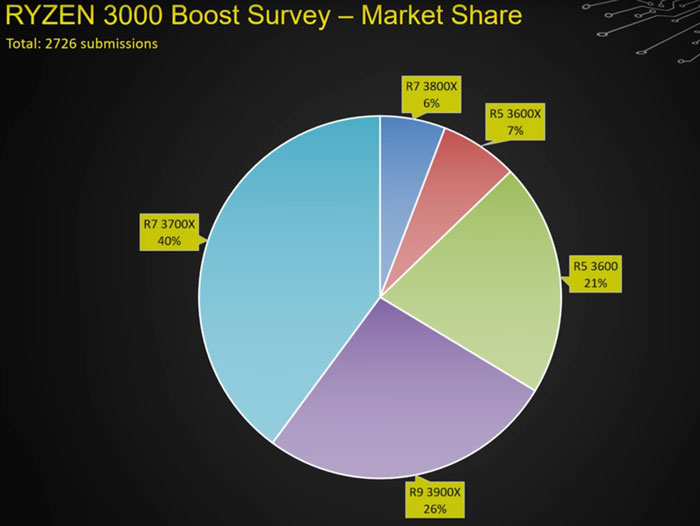
Moving on to the results, the best chips for meeting expectations were the processors at the lower end of the stack. About half of the Ryzen 5 3600 users reported their CPU were boosting 'correctly' - to approximately the advertised boost speed of 4,200MHz. Nearly all the results fell in to a ±100MHz zone from the advertised figure. However, the Ryzen 5 3600X was not nearly as good at living up to expectations, with just 9.4 per cent achieving the advertised boost speeds of 4,400MHz or better.
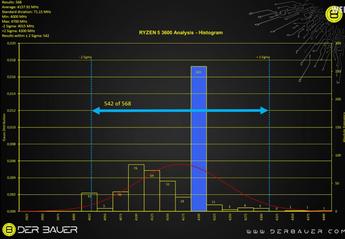 |
Click to zoom the graphs above
At the higher end the distribution of clock speeds, as shown in der8auer's graphs, got worse. For the 12-core Ryzen 9 3900X, for example, only 5.6 per cent of entries were seen to have managed to reach the boost speeds advertised by AMD. See the graph below for this test sample.
Though results of the boost clock testing were "worse" than the OC expert expected, der8auer still considers the AMD Ryzen 3000 series to be good performers, and a good value choice. Thus der8auer asks the question of why, especially with the Ryzen 3900X at 4,600MHz, has AMD decided to market its chips at difficult to achieve / maintain clock speeds? Hopefully these and similar results don't precipitate any legal or other problems for AMD in various countries.
For further Ryzen 3000 reading have a look through the recent HEXUS reviews of the AMD Ryzen 9 3900X and Ryzen 7 3700X, the AMD Ryzen 5 3600X, and the AMD Ryzen 7 3800X.
UPDATE:
In am email to HEXUS and a Twitter update, AMD has made a statement with regard to boost clocks. In brief, it is working on BIOS updates with motherboard partners to address a firmware issue that it has identified. We will hear more about the new BIOS and further optimisations coming alongside the ironing out of the issues on Tuesday, 10th September.
